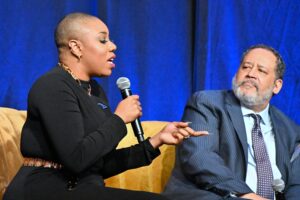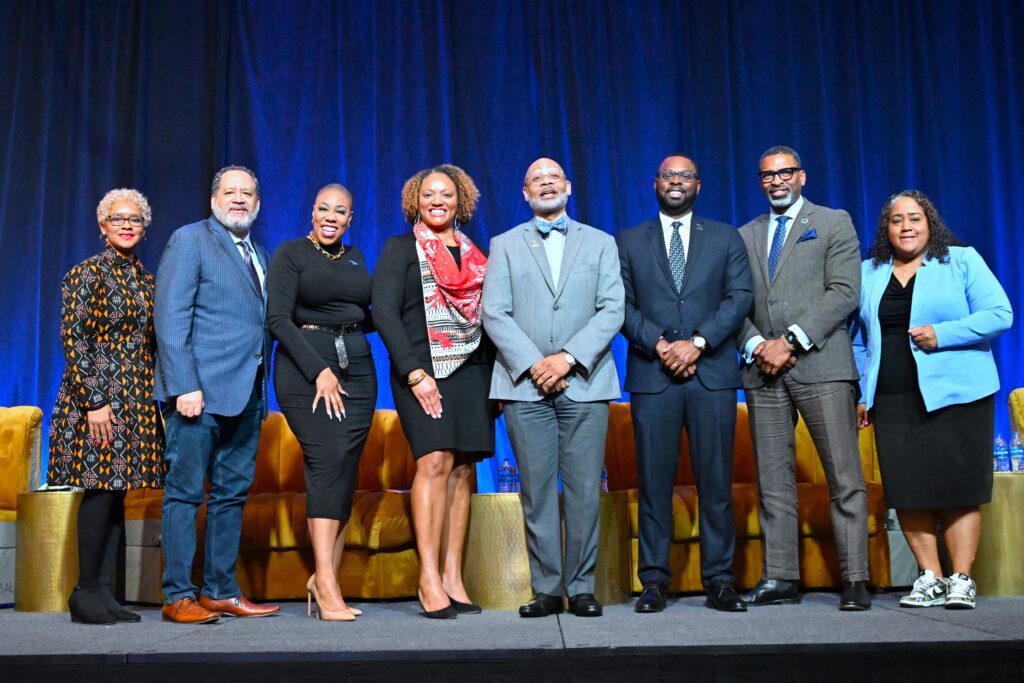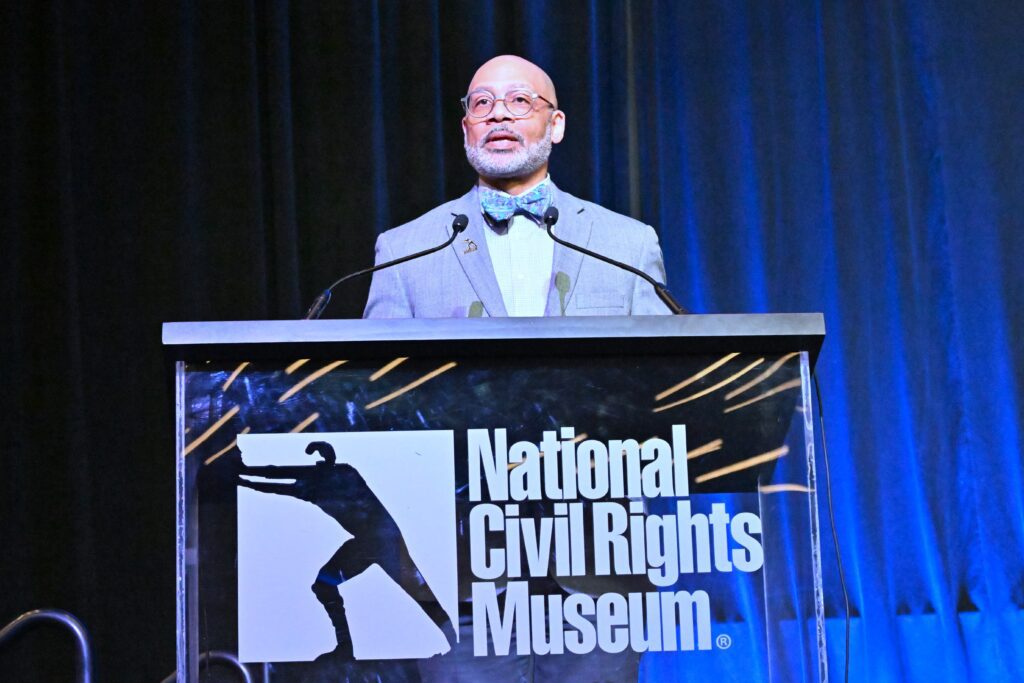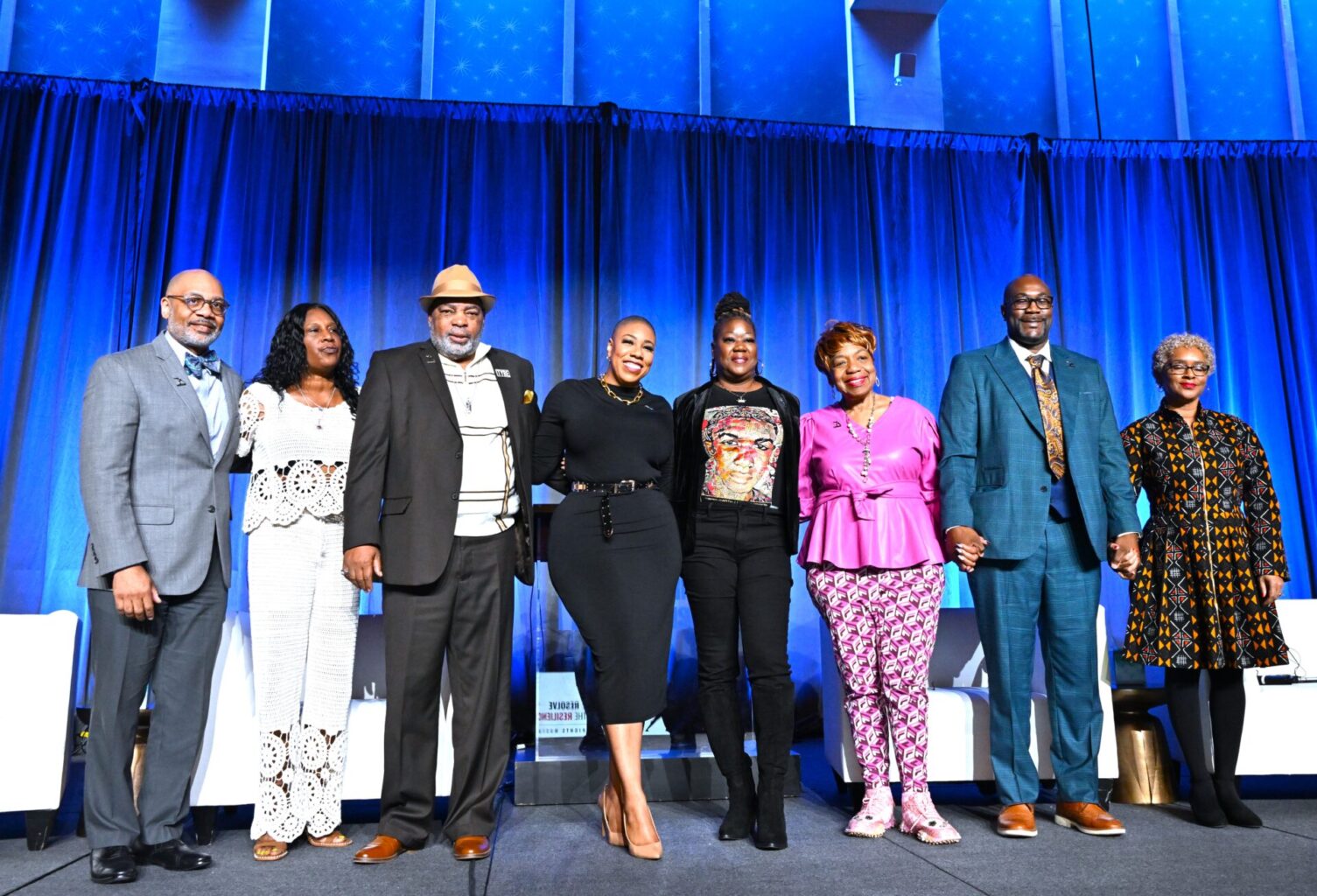The National Civil Rights Museum’s final event in a thought-provoking series, “The Resilience” Symposium, took place on Friday, March 22nd at the Renasant Convention Center in downtown Memphis, embodying the enduring spirit of the Black community.
Moderated by CNN political commentator Symone Sanders-Townsend, the symposium brought to the forefront discussions on police reform, community resilience, and the path from pain to purpose.

The opening panel titled “From Pain to Purpose” brought together family members of nationally recognized victims of violence—RowVaughn and Rodney Wells, the mother and stepfather of Tyre Nichols; Philonise Floyd, the brother of George Floyd; Sybrina Fulton, the mother of Trayvon Martin; and Gwen Carr, the mother of Eric Garner.
In a moment that encapsulated the pain and stress she’s endured, RowVaughn Wells encouraged anyone who needs therapy to get it. She talked about why it’s hard to heal: “It hurts to turn on the TV and see my son’s face every day,” she said.
Wells mentions she and others are working on a national Tyre Nichols-George Floyd bill aimed at fighting police abuse and misconduct. She closed her remarks with a bit of truth: “They are not killing white kids like they are killing black.”

The discussion deepened as a distinguished panel of local and national leaders took the stage, including State Rep. Raumesh Akbari, author Michael Eric Dyson, NAACP President Derrick Johnson, Shelby County Health Department Director Michelle Taylor, and Memphis Mayor Paul Young.
Focused on the multifaceted issue of gun violence, Mayor Young highlighted the critical challenge facing Memphis, with 398 murders since January of this year alone.
“Problems cannot be solved in the board room,” Young said. “There is a sense of hopelessness. We need a call to action, nationally and locally. Every system needs to be engaged.”

The symposium emphasized systemic change, with NAACP President Derrick Johnson and others underscoring the necessity for legislative and societal shifts. Director Taylor highlighted the impact of unextended Medicaid on child poverty and violence in Shelby County.
NAACP President Derrick Johnson agreed that system change is necessary. Sen. Akbari mentioned a need for legislation that repeals gun controls for higher crimes.
Memphis Health Department Director Michelle Taylor spoke about the fact that the
Tennessee State Legislature has not extended Medicaid in Tennessee since 2014 which has
resulted in a $20 million loss of federal dollars. She pointed out that Shelby County has a child poverty rate of 30 percent, and not receiving that funding affects both children in poverty and the rate of violence.
Michael Eric Dyson provocatively noted, “The real religion in America is whiteness,” and described the refusal of Medicaid funds as “invisible genocide.”
Speakers like Eric Cumberbatch of the Center for Policing Equity and Rashawn Ray of the Brookings Institute addressed the critical need for addressing both conscious and unconscious racism, and the importance of mental health support for police officers.
The event, titled “The Resilience,” was the culmination of a series designed to gather leaders, policymakers, and activists, alongside survivor families, to forge actionable solutions against police violence and the injustices burdening Black and Brown communities.
As “The Resilience” Symposium concluded, it stood as a powerful testament to the collective will to address and overcome the systemic challenges of police violence and racial injustice, echoing a clear call for action and unity in the face of adversity.





